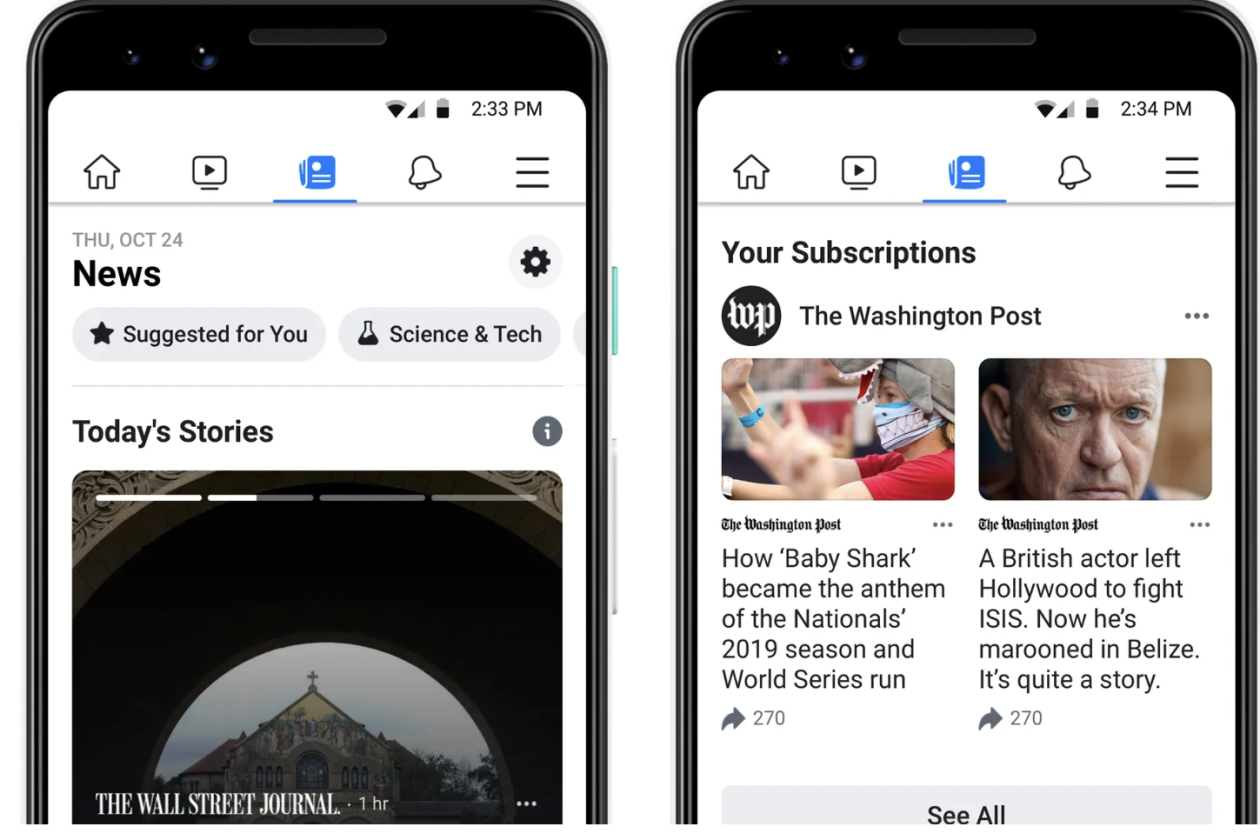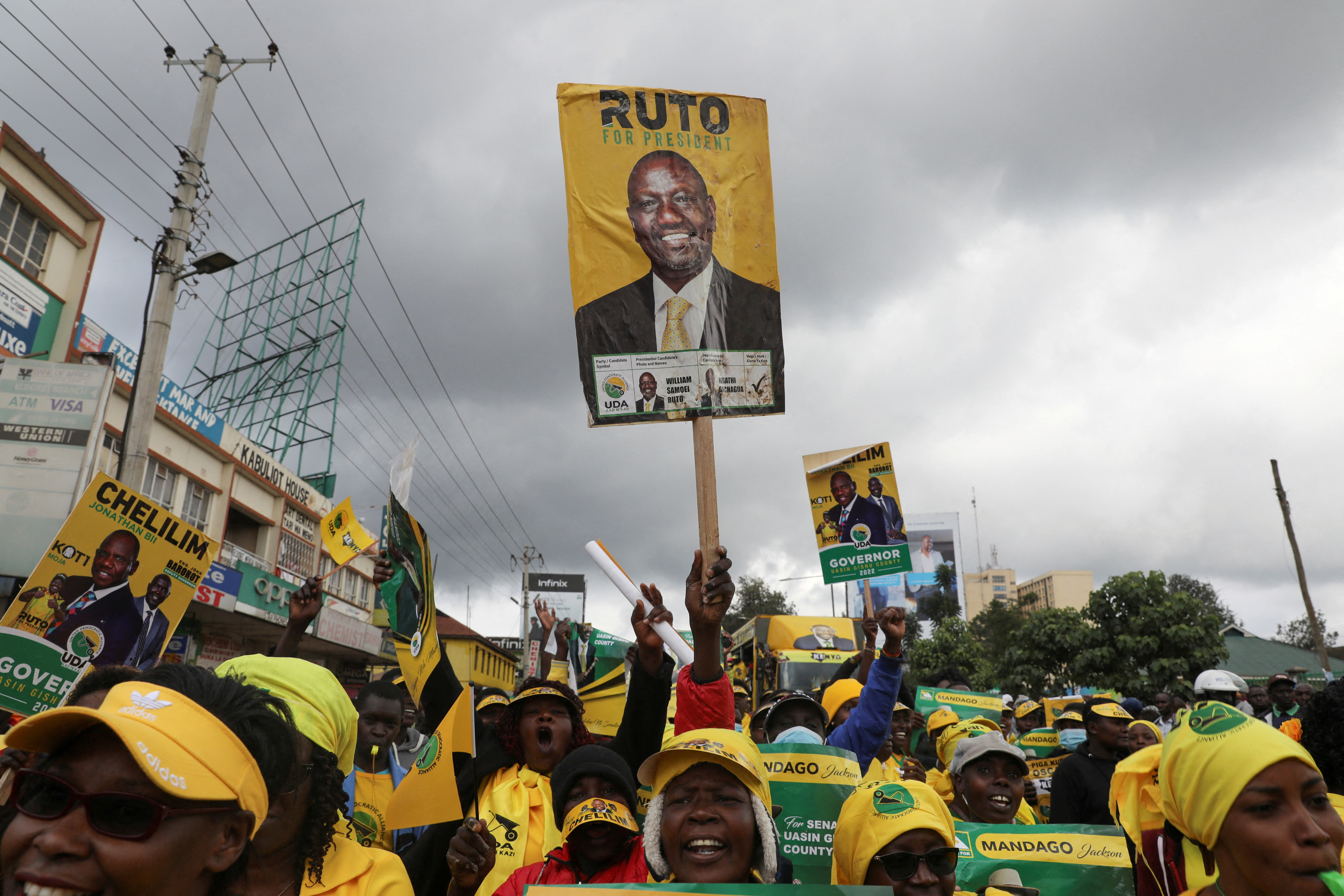Meta is being sued for giving US hospitals a data-tracking tool that allegedly ended up disclosing patient information to Facebook
Samantha Delouya
Aug 2, 2022,

This is the second recent lawsuit accusing hospitals of sharing sensitive patient data with Meta.
According to the suit, one person was served ads for her heart and knee conditions based on her hospital patient portal.
A new lawsuit alleges that Meta has access to the private medical data of millions of people without permission and has used it to serve targeted medicine and treatment ads on Facebook.
The suit, which was filed last week in the Northern District of California, is the second such lawsuit that accuses US hospitals of providing Meta with sensitive patient information and violating HIPAA. The Verge originally reported on the suit earlier Tuesday.
The complaint says that these hospitals used Meta's Pixel tool, which then accessed patients' password-protected portals and shared sensitive health information that Meta then sold to Facebook advertisers.
Meta Pixel is a tool that allows businesses to measure and build audiences for ad campaigns.
In June, an investigation by nonprofit newsroom The Markup found that 33 of the top 100 hospitals in America use the Meta Pixel.
The complaint details the experience of one Facebook user who began receiving targeted ads for medication related to heart and knee conditions that she had entered in her private patient portal at the University of California, San Francisco Medical Center.
Meta's policy says advertisers should not share data with Meta that they know includes health, financial information, or other categories of sensitive information. However, the lawsuit accuses Meta of knowingly collecting this sensitive medical data from healthcare websites.
Meta declined to provide Insider with a comment for this story.
Meta has come under fire for its data-tracking policies in the past, and Insider has reported that the company is currently building a "basic ads" product that doesn't rely on users' personal information.
Samantha Delouya
Aug 2, 2022,
AP Photo/Mark Lennihan
A new lawsuit alleges that Meta has used people's medical data without permission for targeted ads on Facebook.
A new lawsuit alleges that Meta has used people's medical data without permission for targeted ads on Facebook.
This is the second recent lawsuit accusing hospitals of sharing sensitive patient data with Meta.
According to the suit, one person was served ads for her heart and knee conditions based on her hospital patient portal.
A new lawsuit alleges that Meta has access to the private medical data of millions of people without permission and has used it to serve targeted medicine and treatment ads on Facebook.
The suit, which was filed last week in the Northern District of California, is the second such lawsuit that accuses US hospitals of providing Meta with sensitive patient information and violating HIPAA. The Verge originally reported on the suit earlier Tuesday.
The complaint says that these hospitals used Meta's Pixel tool, which then accessed patients' password-protected portals and shared sensitive health information that Meta then sold to Facebook advertisers.
Meta Pixel is a tool that allows businesses to measure and build audiences for ad campaigns.
In June, an investigation by nonprofit newsroom The Markup found that 33 of the top 100 hospitals in America use the Meta Pixel.
The complaint details the experience of one Facebook user who began receiving targeted ads for medication related to heart and knee conditions that she had entered in her private patient portal at the University of California, San Francisco Medical Center.
Meta's policy says advertisers should not share data with Meta that they know includes health, financial information, or other categories of sensitive information. However, the lawsuit accuses Meta of knowingly collecting this sensitive medical data from healthcare websites.
Meta declined to provide Insider with a comment for this story.
Meta has come under fire for its data-tracking policies in the past, and Insider has reported that the company is currently building a "basic ads" product that doesn't rely on users' personal information.
Reports: Meta To Stop Paying US Publishers To Put Content In Facebook’s News tab

ByB&T MAGAZINE
3 AUGUST, 2022
Tech giant Meta has reportedly started informing its news partners in the US that the company will stop paying publishers for their content to run on Facebook’s News Tab.
According to US new site Axios, as the company moves forward with big changes to the Facebook experience, news has apparently become far less of a priority.
Insiders have revealed that Meta’s VP of media partnerships, Campbell Brown, had reportedly told staff that the company was shifting resources away from its news products to support more “creative initiatives”
Back in 2019, Facebook brokered a slew of three-year deals with publishers as it ramped up its investment in news and even hired journalists to help direct publisher traffic to its new tab for news.
The deals were set to have cost Zuckerberg a cool $US105 million ($A153 million) and included $US10 million ($A14.4 million) for the Wall Street Journal, $US20 million ($A29 million) for the New York Times, and $US3 million ($A4.3 million) for CNN.
Meta also spent $US90 million ($A130 million) on news videos for the company’s video tab called “Watch”, citing sources, the report said.
A Facebook spokesperson is being quoted by Axios as having said: “A lot has changed since we signed deals three years ago to test bringing additional news links to Facebook News in the US. Most people do not come to Facebook for news, and as a business it doesn’t make sense to over-invest in areas that do not align with user preferences.”
When Facebook first introduced the News tab back in 2019, it promoted the potential of a section with daily top stories “chosen by a team of journalists” that could avoid the pitfalls of other news deed adventures that sometimes boosted fake news, the Instant Articles that publishers didn’t appreciate, or its infamous “pivot to video”.

ByB&T MAGAZINE
3 AUGUST, 2022
Tech giant Meta has reportedly started informing its news partners in the US that the company will stop paying publishers for their content to run on Facebook’s News Tab.
According to US new site Axios, as the company moves forward with big changes to the Facebook experience, news has apparently become far less of a priority.
Insiders have revealed that Meta’s VP of media partnerships, Campbell Brown, had reportedly told staff that the company was shifting resources away from its news products to support more “creative initiatives”
Back in 2019, Facebook brokered a slew of three-year deals with publishers as it ramped up its investment in news and even hired journalists to help direct publisher traffic to its new tab for news.
The deals were set to have cost Zuckerberg a cool $US105 million ($A153 million) and included $US10 million ($A14.4 million) for the Wall Street Journal, $US20 million ($A29 million) for the New York Times, and $US3 million ($A4.3 million) for CNN.
Meta also spent $US90 million ($A130 million) on news videos for the company’s video tab called “Watch”, citing sources, the report said.
A Facebook spokesperson is being quoted by Axios as having said: “A lot has changed since we signed deals three years ago to test bringing additional news links to Facebook News in the US. Most people do not come to Facebook for news, and as a business it doesn’t make sense to over-invest in areas that do not align with user preferences.”
When Facebook first introduced the News tab back in 2019, it promoted the potential of a section with daily top stories “chosen by a team of journalists” that could avoid the pitfalls of other news deed adventures that sometimes boosted fake news, the Instant Articles that publishers didn’t appreciate, or its infamous “pivot to video”.
Kenyan ministers rally around Meta's Facebook after watchdog's ultimatum



Supporters of Kenya's opposition leader and presidential candidate Raila Odinga of the Azimio la Umoja (Declaration of Unity) party attend a campaign rally ahead of the forthcoming general election, in the Rift Valley town of Suswa, Narok county, Kenya July 30, 2022.



Supporters of Kenya's opposition leader and presidential candidate Raila Odinga of the Azimio la Umoja (Declaration of Unity) party attend a campaign rally ahead of the forthcoming general election, in the Rift Valley town of Suswa, Narok county, Kenya July 30, 2022.
REUTERS/Thomas Mukoya/File Photo
NAIROBI, Aug 1 (Reuters) - Kenya has no intention of shutting down Facebook, which is owned by Meta (META.O), its ICT minister said on Monday after the national cohesion watchdog gave the platform seven days to comply with rules on hate speech or face suspension.
The National Cohesion and Integration Commission (NCIC) on Friday accused Facebook of contravening Kenya's constitution and laws for failing to tackle hate speech and incitement on the platform ahead of Aug. 9 national elections. read more
"We do not have a plan to shut down any of these platforms," Joe Mucheru, the minister for information, communication and technology, told Reuters. "Press freedom is one we cherish, whether it is (traditional) media or social media."
His statement echoed that of the interior minister, Fred Matiangi, who accused the NCIC of making haphazard decisions over the weekend, and vowed that the platform will not be shut down.
"They (NCIC) should have consulted widely because they don't have the power to shut anybody down. They don't licence anybody," Mucheru said.
When it issued its ultimatum, the NCIC said it was consulting with the Communication Authority of Kenya, which regulates the industry, adding that it would recommend suspension of Facebook's operations if it does not comply.
Meta has taken "extensive steps" to weed out hate speech and inflammatory content, and it is intensifying those efforts ahead of the election, a company spokesperson told Reuters.
Mucheru agreed, adding that the platform has deleted 37,000 hate speech related posts during the electioneering period.
Supporters of the leading presidential candidates, veteran opposition leader Raila Odinga and deputy president William Ruto, have used social media platforms to praise their candidates, persuade others to join them or to accuse opposing sides of various misdeeds.
Some of Kenya's 45 tribes have targeted each other during violence in past polls, but Mucheru said this election is different and the country is enjoying peace and calm in spite of the heightened political activities.
NAIROBI, Aug 1 (Reuters) - Kenya has no intention of shutting down Facebook, which is owned by Meta (META.O), its ICT minister said on Monday after the national cohesion watchdog gave the platform seven days to comply with rules on hate speech or face suspension.
The National Cohesion and Integration Commission (NCIC) on Friday accused Facebook of contravening Kenya's constitution and laws for failing to tackle hate speech and incitement on the platform ahead of Aug. 9 national elections. read more
"We do not have a plan to shut down any of these platforms," Joe Mucheru, the minister for information, communication and technology, told Reuters. "Press freedom is one we cherish, whether it is (traditional) media or social media."
His statement echoed that of the interior minister, Fred Matiangi, who accused the NCIC of making haphazard decisions over the weekend, and vowed that the platform will not be shut down.
"They (NCIC) should have consulted widely because they don't have the power to shut anybody down. They don't licence anybody," Mucheru said.
When it issued its ultimatum, the NCIC said it was consulting with the Communication Authority of Kenya, which regulates the industry, adding that it would recommend suspension of Facebook's operations if it does not comply.
Meta has taken "extensive steps" to weed out hate speech and inflammatory content, and it is intensifying those efforts ahead of the election, a company spokesperson told Reuters.
Mucheru agreed, adding that the platform has deleted 37,000 hate speech related posts during the electioneering period.
Supporters of the leading presidential candidates, veteran opposition leader Raila Odinga and deputy president William Ruto, have used social media platforms to praise their candidates, persuade others to join them or to accuse opposing sides of various misdeeds.
Some of Kenya's 45 tribes have targeted each other during violence in past polls, but Mucheru said this election is different and the country is enjoying peace and calm in spite of the heightened political activities.
No comments:
Post a Comment